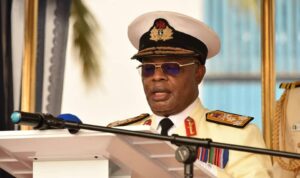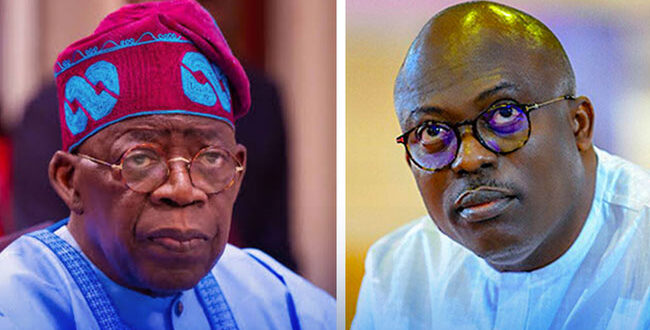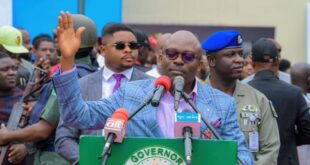Understanding Section 305 of the 1999 Constitution
Section 305 of the 1999 Constitution of Nigeria empowers the President to declare a state of emergency under specific circumstances. According to the provision, a state of emergency can be declared when:
- The Federation or any part of it is in imminent danger of invasion.
- There is an actual breakdown of public order and public safety.
- There is a clear danger of public disorder, leading to a state of war or insurgency.
- There is a disaster or natural calamity that threatens the Federation.
- There is no other public danger that constitutes a threat to Nigeria’s existence.
For such a declaration to be legal, the President must seek approval from the National Assembly within two days if it is in session, or within ten days if not.
The Crisis in Rivers State
The state of emergency in Rivers State did not emerge in a vacuum. Tensions had been building due to political conflicts between Governor Fubara and members of the state assembly. The crisis escalated when lawmakers initiated impeachment proceedings against Fubara over alleged illegal budget presentations and constitutional violations.
Furthermore, Rivers State has experienced a surge in pipeline vandalism, with recent sabotage on the Trans Niger Pipeline threatening economic stability. Given the importance of Rivers as a key oil-producing state, this raised national security concerns. In response, President Tinubu appointed retired Vice Admiral Ibokette Ibas as the military administrator while ensuring that the judiciary remained functional.

Legal and Political Controversies
The declaration of emergency rule has triggered significant legal and political debate. One of the most contentious issues is whether the President had the constitutional authority to suspend an elected governor and the state legislature.
The Nigerian Bar Association (NBA) has criticized the move, arguing that Section 305 does not grant the President the power to dissolve a duly elected government. According to legal experts, an emergency declaration should focus on restoring order rather than suspending democratic structures. This perspective raises questions about whether the declaration violates the principle of separation of powers.
On the political front, opposition parties and civil society organizations have accused the federal government of using emergency rule as a tool for political control. Some see it as an attempt to weaken Governor Fubara’s political influence and consolidate federal power over the state.
Historical Context and Precedents
Nigeria has witnessed emergency rule declarations in the past, but they have typically followed extreme cases of violence or constitutional crises. For instance:
- In 2004, President Olusegun Obasanjo declared a state of emergency in Plateau State due to ethnic conflicts, suspending the governor and the state assembly.
- In 2013, President Goodluck Jonathan imposed emergency rules in Adamawa, Borno, and Yobe states in response to the Boko Haram insurgency. Yet he did not remove the elected governors at that time.
- In 2004, President Olusegun Obasanjo suspended Plateau State Governor Joshua Dariye and the state assembly, appointing Maj. Gen. Chris Ali to take over.
- In 2006, President Olusegun Obasanjo suspended Ekiti State Governor Ayo Fayose and his deputy. He then appointed Brig. Gen. Tunji Olurin to take over.
- In 2025, President Bola Ahmed Tinubu suspended Rivers State Governor Siminalayi Fubara, his deputy, and the state assembly for six months.
However, these precedents involved serious security threats rather than political disputes, making the Rivers situation somewhat unique.
Implications for Nigeria’s Democracy
The Rivers State emergency rule raises broader questions about democracy and governance in Nigeria. If emergency powers can be used to remove elected officials, it sets a dangerous precedent for future administrations. The potential for abuse of emergency declarations to settle political disputes could weaken Nigeria’s democratic institutions.
Moreover, the move has implications for the 2027 general elections. With Rivers State being a strategic political battleground, emergency rule could influence the power dynamics ahead of the next election cycle.
Conclusion
The declaration of emergency rule in Rivers State under Section 305 of the 1999 Constitution remains a contentious issue. While the federal government justifies it as necessary for restoring order, legal experts and political analysts question its constitutionality. As debates continue, the outcome of this crisis will likely shape Nigeria’s democratic trajectory in the years to come.
The coming months will be crucial in determining whether this intervention was a necessary safeguard or an overreach of executive power.




